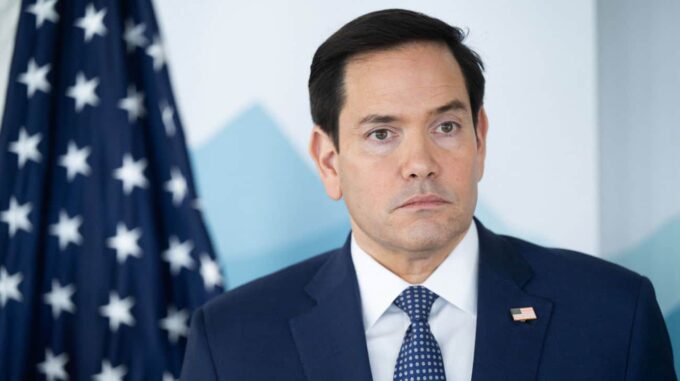U

S. Secretary of State Marco Rubio made a significant statement that could mark a new stage in diplomatic efforts to resolve the conflict between Russia and Ukraine. In a recent briefing at the State Department on April 29, he announced that the United States is prepared to cease its role as mediator if there is no substantial progress toward achieving peace. This appeared to many analysts as a signal of a shift in Washington’s approach to international efforts aimed at ending the armed conflict, which has long been destroying the lives of millions and has caused a large-scale humanitarian crisis. Rubio noted that the time has come for both sides — Ukraine and Russia — to propose concrete, realistic, and feasible proposals for ceasefire. According to him, the decision on further diplomatic steps now depends directly on U.S. President Donald Trump. “If progress is not achieved, we will step back from our mediatory role in this process,” stated the Secretary of State, emphasizing that Washington is ready to relieve itself of the responsibility for future negotiations if promising signals of peace do not emerge. When asked about specific timeframes in which these policy changes might be implemented, State Department spokeswoman Toney Bruce did not provide a clear answer. She only stressed that Rubio’s statement is “very clear,” and highlighted that it concerns the timeframes that the parties should follow in subsequent dialogues. At the same time, she emphasized that the aim is “to achieve a full and lasting ceasefire,” not short-term truce agreements, which are only temporary. Bruce added that the goal is a “comprehensive, durable ceasefire and ending the conflict,” implying that any short-term “ceasefires” are merely tactical measures that do not ensure long-term peace. Rubio’s statement was a logical continuation of his earlier comments, in which he emphasized that the coming week will be crucial in determining the U.S. position on further steps. It is known that European diplomats, as well as Ukrainian officials still hopeful for diplomatic resolution, share this view. However, there are also troubling forebodings: according to authoritative sources, the Financial Times reports that senior officials fear that the new U.S. President Donald Trump might make an unexpected move toward withdrawing from the peace negotiations process with Kyiv and Moscow, using even minor diplomatic progress as a pretext to abandon diplomatic efforts. This additionally complicates prospects for achieving the long-awaited peace and creates uncertainty about the future of the conflict’s diplomatic settlement. Overall, Washington’s new stance could become a turning point in diplomacy, shaping the future of the Ukraine-Russia conflict. At the same time, the situation remains extremely tense and unstable, as all parties involved are searching for the most optimal way to stop the war. However, political and military interests, unresolved issues, and strategic differences still stand in the way. While diplomatic efforts around peace remain on the brink of failure, many experts emphasize that the upcoming week will be decisive in determining the trajectory of this crisis.

